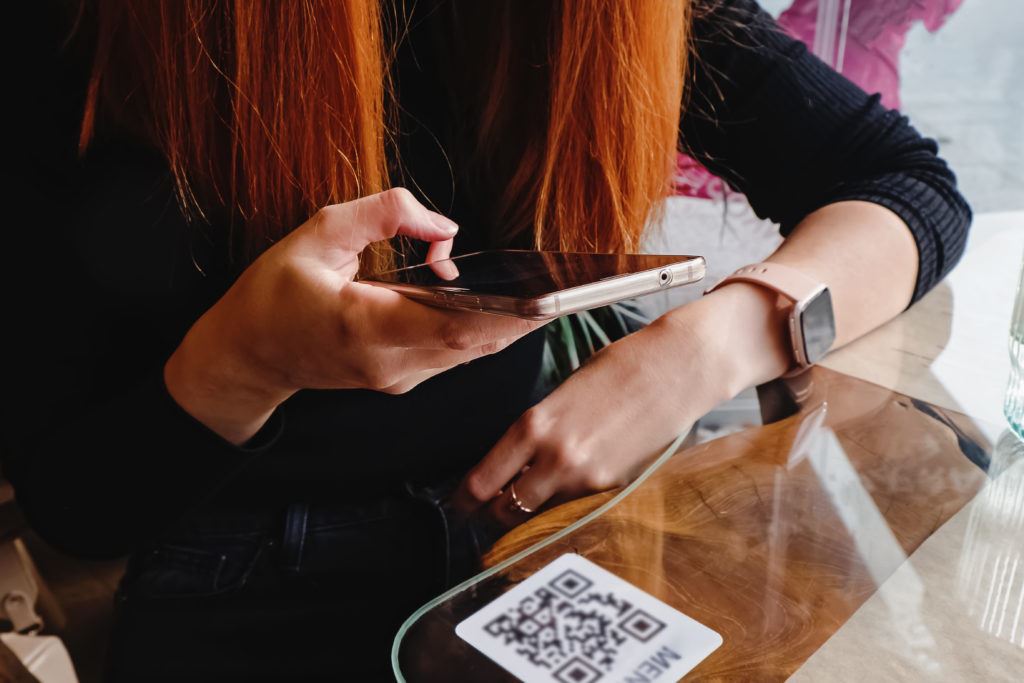
Photo courtesy of Cervion Systems
Similar to other technologies that became popular or were invented during the pandemic, but will certainly outlast the pandemic, QR codes have popped up virtually everywhere. For restaurants in particular, QR codes offer a wide range of benefits, and could offer even more in the future if tailored accordingly.
QR codes did exist pre-pandemic. They were created in 1994 by Japanese engineer Masahiro Hara to keep track of car parts for the company Denso Wave. Their quick-response iterations came to be used much more widely with the advent of smartphones. By the time the pandemic came around, their use, especially in the food and beverage sector, skyrocketed their popularity; according to Bitly, a 750% increase in QR downloads was reported over the past 18 months.
Looking forward, however, the QR code’s value and versatility must be properly recognized.
Customer information and data
QR codes are a great source for obtaining and recording customer information and data. This is especially true for restaurants who don’t offer delivery services or don’t take reservations who effectively receive no customer data. This is also true for restaurants who use third-party food delivery services who, until just recently, never shared customer data with the restaurants themselves.
Tied into this information is also the ability to remember customers, and thus offer individualized or targeted experiences, that QR codes offer restaurants. According to Peabody, QR codes could be used to track previous orders as well as allow diners to reorder with ease. They can also be used to record a customer’s compliance, say with a contact tracing form, and then offer gift cards or credits down the line.
Efficiency
QR codes cut down on losing precious time in 3 facets of a dining experience: waiting for menus, waiting for the check, and reordering. Without a QR code, diners rely on their server to bring them the menu before they can order, reorder, or pay – with the QR code, however, all can be done at a much faster pace; this saves both parties’ time.
Online ordering
Aside from delivery and takeout transactions, QR codes offer restaurants the ability to bring online ordering on premise. According to the digital ordering platform Olo, it has been found that digital on-premises transactions made up 1% of overall industry transactions for the first time almost entirely because of QR codes and self-ordering kiosks. According to Olo CEO Noah Glass, “this is a big move in an industry that does 60 billion transactions in a typical year to see 1% moving to digital on-premises.”
Tracking trends
Lastly, QR codes can also be used to reflect trends and current menu valuations. According to Bitly President Raleigh Harbour, “they’re able to adjust their menu offerings on the fly to account for elements like inflation, fluctuations in food and commodities prices, and other variables.”
With all of these positives always comes some negatives, however. According to NPD Group food and beverage analyst Darren Seifer, “there is hesitancy with some of the finer restaurants because it isn’t as classy as getting the check at the end of the meal.” This has been a recurring theme with many upscale establishments who find that technology that limits person-to-person interaction is less suitable to their level of service. Another downside is that QR codes require a certain level of digital comfort – which some may lack. In this case, it is better not to rely solely on QR codes and offer diners the option of both.
In general, and looking forward, however, restaurants should recognize the extent to which QR codes can help make their operations more efficient.
Founded by attorneys Andreas Koutsoudakis and Michael Iakovou, KI Legal focuses on guiding companies and businesses throughout the entire legal spectrum as it relates to their business including day-to-day operations and compliance, litigation and transactional matters.
Connect with Andreas Koutsoudakis on LinkedIn.
Connect with Michael Iakovou on LinkedIn.
This information is the most up to date news available as of the date posted. Please be advised that any information posted on the KI Legal Blog or Social Channels is being supplied for informational purposes only and is subject to change at any time. For more information, and clarity surrounding your individual organization or current situation, contact a member of the KI Legal team, or fill out a new client intake form.
The post QR Codes, Besides their Practicality, May Generate Added Benefits Down the Line appeared first on KI Legal.
